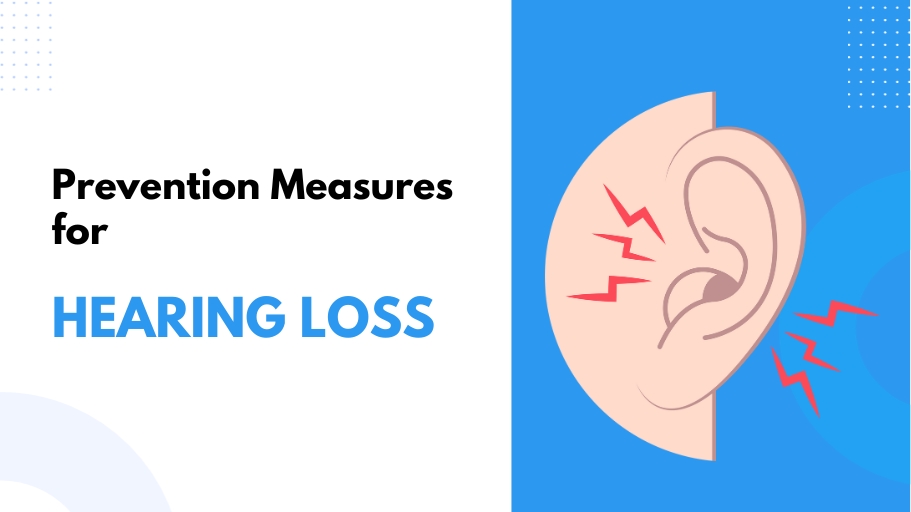Prevention Measures for Hearing Loss: What You Need to Know

Hearing plays a crucial role in our quality of life, enabling us to communicate, learn, and enjoy our surroundings. It connects us with people, nature, music, and countless other auditory experiences that enrich our lives. This vital sense aids in forming relationships, participating in social activities, and navigating the world safely. Furthermore, hearing contributes to our overall cognitive abilities, including memory and concentration.
In this article, we’ll discuss the various ways of protecting our hearing and preventing hearing loss.
Contents
ToggleUnderstanding Hearing Loss
Hearing loss can be caused by various factors, such as genetics, aging, ear infections, or prolonged exposure to loud noises. Although it is common for people to experience some degree of hearing impairment as they age, noise-induced hearing loss (NIHL) is the most preventable form of hearing damage. In fact, overexposure to noise can cause a permanent reduction in hearing sensitivity and is one of the leading causes of acquired deafness worldwide.
NIHL affects people from all walks of life, regardless of age, gender, or occupation. It can occur gradually over time, or it may manifest suddenly after a single incident of loud sound exposure (e.g., blasting music at a concert). Therefore, it’s important to understand the risks and take necessary precautions.
Preventing Hearing Loss
The most effective way to prevent hearing loss is to avoid loud sounds or reduce their intensity when possible. When attending a concert or other noisy event, it’s wise to wear earplugs or noise-canceling headphones. Additionally, limit your exposure time in noisy areas and give your ears a break every 15 minutes or so.
For people who work in noisy environments, employers have the responsibility of identifying areas with high noise levels and providing adequate hearing protection for their employees. This includes conducting audiogram testing in Oregon and offering access to custom-fit earplugs, noise-canceling headphones, or other protective gear.
Apart from physical protection, another important measure is to stay informed about the potential hazards of loud sounds and spread awareness among family and friends. This includes educating children on the dangers of turning up music too loudly or playing with noisy toys. By learning more about hearing loss and its prevention, we can all take steps to protect our hearing and enjoy the rich sounds of life.
Monitor Your Hearing Health
It’s also important to be vigilant about your hearing health. Regularly schedule appointments with an audiologist for testing and monitoring any changes in your hearing over time. If you notice signs of hearing impairment such as a sudden muffling of sound or difficulty understanding conversations, seek medical attention right away. Early diagnosis and treatment are key to reducing the severity of hearing damage and can help prevent further complications in the future.
Overall, taking steps to protect your hearing from loud noises is essential for maintaining healthy hearing. Be mindful of sound exposure levels and use protective gear when necessary. And be sure to monitor your hearing health regularly for any signs of impairment. With the right precautions, everyone can enjoy the world’s sounds safely and keep their ears healthy for years to come.
Conclusion
Hearing is an essential sense that allows us to connect with our environments in many ways. By understanding how hearing loss occurs and taking necessary precautions, we can protect our hearing from damage and enjoy its full potential. Be mindful of sound levels, use protective gear when needed, and monitor your hearing health regularly to keep your ears safe and healthy. With these tips in mind, you can experience the beautiful sounds of life for years to come!
Do you have any questions or concerns about protecting your hearing health? Contact an audiologist today to learn more!
Recommended For You
How To Find The Right Family Dentist In Garland, TX
Most Inside
Most Inside offers high-quality recommendations and valuable updates to enhance all aspects of your life, providing premium guidance and enriching experiences.




